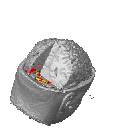






























From the IB
The term Psychodynamics refers to a wide group of theories that emphasize the overriding influence of instinctive drives and forces, and the importance of developmental experiences in shaping personality. Early in their development, these theories focused solely on the influence of unconscious drives and forces, but they received much criticism and subsequent revision. Most recent Psychodynamics theory places greater emphasis on conscious experience and its interaction with the unconscious, in addition to the role that social factors play in development.
Psychodynamics theories are in basic agreement that the study of human behaviour should include factors such as internal processes, personality, motivation and drives, and the importance of childhood experiences. Classic theories about the role of the unconscious sexual and aggressive drives have been re-evaluated to focus on conscious experience, resulting in, for example, the birth of ego psychology.
In this unit, students will study the historical development of this perspective and become aware of the revisions of classical Psychodynamics theory.
Objectives of the Unit:
-
 Describe and evaluate relevant theories and empirical studies related to Psychodynamics psychology
Describe and evaluate relevant theories and empirical studies related to Psychodynamics psychology -
 Explain how cultural, ethical, gender, and methodological considerations affect the interpretation of behaviour in Psychodynamics psychology.
Explain how cultural, ethical, gender, and methodological considerations affect the interpretation of behaviour in Psychodynamics psychology. -
 Describe and evaluate specific methodologies used in Psychodynamics psychology.
Describe and evaluate specific methodologies used in Psychodynamics psychology. -
 Describe and evaluate application of research findings and theories in Psychodynamics psychology.
Describe and evaluate application of research findings and theories in Psychodynamics psychology. -
 Compare and evaluate theories of the influence of childhood experience on human behaviour.
Compare and evaluate theories of the influence of childhood experience on human behaviour. -
 Assess the role of both the unconscious and the conscious mind on human behaviour.
Assess the role of both the unconscious and the conscious mind on human behaviour.
A little humor



